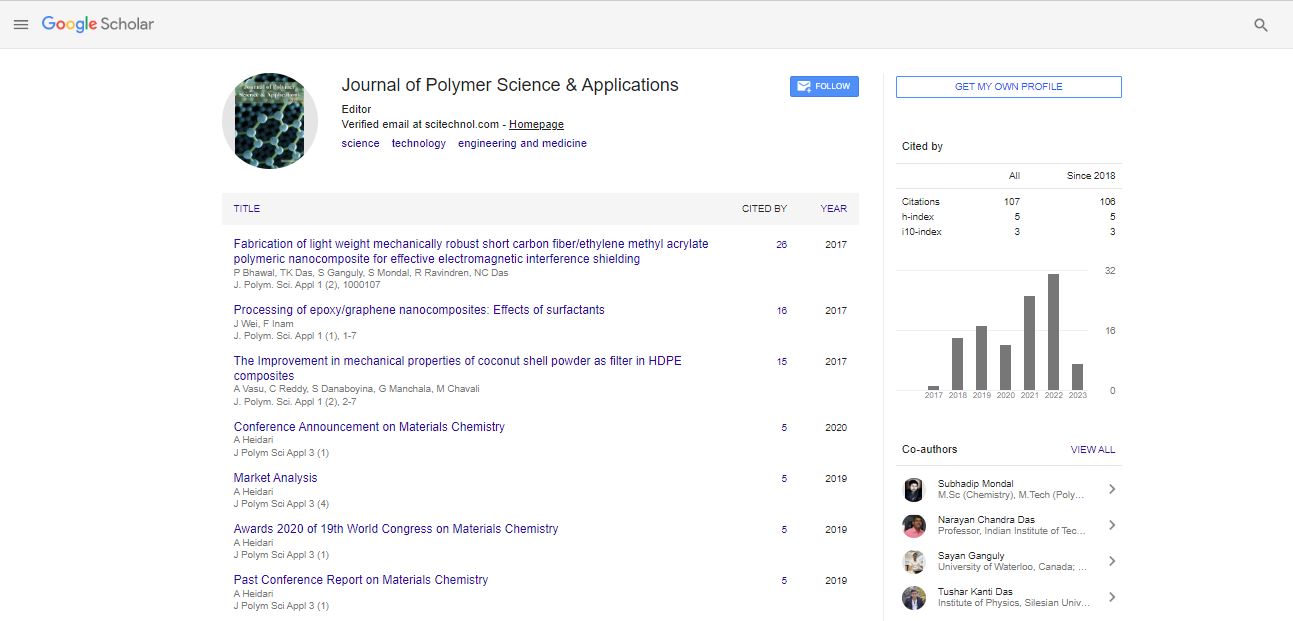Using polymer electrolyte membrane electrolysis to improve the generation of renewable energy
Anyanwu Chidimma GoGo
University of Agriculture and Environmental Sciences, Nigeria
: J Polym Sci Appl
Abstract
Polymer chemistry and polymer thermodynamics is widely studied its sustainability and cycle assessments of polymer electrolyte membranes which are considered important for sustainability because of their widespread us in fuel cell. The polymer electrolyte membrane (pem) fuel cell is a hydrogen fuel cell that directly converts hydrogen and oxygen into electrical energy, water, and waste heat, without generating harmful gases emitted by conventional internal combustion engines. Polymer electrolyte membrane (pem) electrolysis is responsible for the conduction of protons, separation of product gases, and electrical insulation of the electrodes. The pem electrolyzer was introduced to overcome the issues of partial load, low current density, and low pressure operation currently plaguing the alkaline electrolyzer. The ability of the pem electrolyzer to operate, not only under highly dynamic conditions but also in part-load and overload conditions is one of the reasons for the recently renewed interest in this technology. The demands of an electrical grid are relatively stable and predictable, however when coupling these to energy sources such as wind and solar, the demand of the grid rarely matches the generation of renewable energy.
 Spanish
Spanish  Chinese
Chinese  Russian
Russian  German
German  French
French  Japanese
Japanese  Portuguese
Portuguese  Hindi
Hindi 